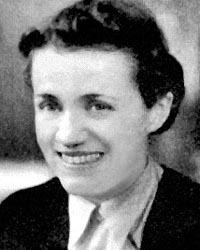Margarethe Von Trotta’s “Hannah Arendt” is an odd, diffuse film. I never quite got what it thought it was bringing us: Hannah Arendt as martyr? Hannah Arendt as the that beautiful, desirable, intelligent philosopher? Hannah Arendt the victim? Hannah Arendt cheered on by her students as she slaps those insolent leftists silly with her ruthless dissection of the morals of the bourgeoisie?
Hannah Arendt travels to Jerusalem on behalf of New Yorker Magazine to cover the trial of Adolf Eichmann. For the life of me, I don’t understand why the movie goes on at length about how much the New Yorker wanted her to finish her articles (and her book), except, perhaps, because someone wanted us to know more about William Shawn and Mary McCarthy.
There is a practical dimension to Arendt’s theory: the evil of the Holocaust derives from a system of colluding parts, of inauthentic people unable to see the world through any perspective but their own, and desiring power and control. So, to prevent evil in the future, we need to make sure we don’t recreate that kind of system. And, jeez, yeah, it does sound a lot more lame now than it did in the movie. Because it’s hard to apply this kind of analysis to, say, Syria, or the Japanese in Shanghai, or Kosovo, or Srebrenica. It just seems… lame.
At the same time, she is right. The solution to suicide bombers is not to find some way to communicate to the potential suicide bomber that what he is thinking of doing is wrong. The solution is to attack the system that produces young men willing to kill themselves for this cause.
According to Arendt– I can’t speak for her, so, to be fair, she might think otherwise– Calley too may have just been part of an inauthentic system the actions of which produced evil– the slaughter of 500 civilians in My Lai, Viet Nam in 1968. But the comments of Ron Ridenhour, among others, are very telling. When he told friends and family at home what had happened in My Lai they all, to a person, warned him to shut up about it. Not one of these people cared enough about justice to advise him to inform the authorities. Not one. Not one. Not one.
Were they all part of a machine? Were they all, individually, not responsible in part for the murders of 500 people? Yes, they were normal people. Yes, normal is permeated with something I would call “evil”. And yes, they were monsters, every one of them. And if you say that to an average person today, they will get angry at you because they know, deep down in their hearts, that they would have done the same thing. And that is about as harsh a thing as you can say about humanity but it’s true and Arendt really is on the wrong side of this question.
As good a summary as I have seen on Arendt’s views of Eichmann:
Arendt’s book is justly famous because it posed this deeply important question and offered an answer that has, over time, come to be seen as persuasively right. In short, it is the case that modern systems of administratively organized murder and criminality depend upon the collaboration and work of many people who, while they support the general goals of the regime, would not otherwise imagine themselves criminals and murderers. These people act out of conviction, but they seek to justify what they do in clichés and bureaucratic language. They take pride not only in their dutifulness, but also in their initiative and support for carrying out the goals of the regime. Ordinary in many ways and far from being cold-blooded killers, they nevertheless willingly and even enthusiastically participate in an administrative machinery of death. They are able to do so, Arendt suggested, because they close themselves off from others and come to think in an echo chamber where they hear and credit no opinions that challenge their own. This shallow thoughtlessness—Arendt elsewhere calls dumbness—is what she names the banality that allows modern regimes of evil to cause such horrifically and decidedly non-banal evil.
There’s a lot that’s right in her analysis. Where I fundamentally disagree with her is her implication that Eichmann is not really evil because he is merely part of a system (as Eichmann himself claimed). On the contrary, I believe that each member of an evil system really is evil. I believe that the majority of Americans who voted for Richard Nixon, and Johnson, and Reagan, and Bush, are culpable for the deaths of the victims of American military aggression during those years.
What Arendt points to is the fact that we have developed complex and sophisticated ways of pretending to be morally good– one of the most prominent of which is the enthusiastic condemnation of others who do what we secretly want to do: kill our enemies.


